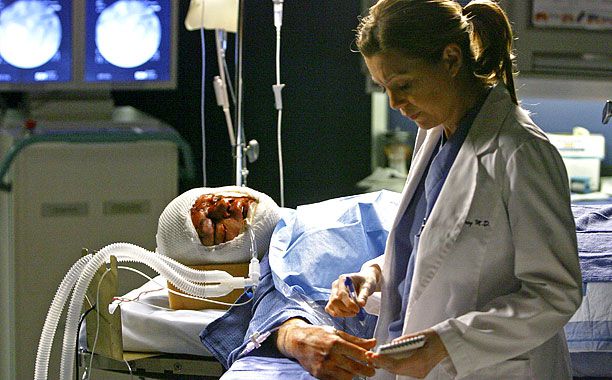
Grey's Anatomy has always been a show defined by goodbyes. From the searing pain of George O'Malley's tragic end to the heart-wrenching loss of Lexie and Mark, the operating room of Grey Sloan Memorial Hospital has witnessed more farewells than triumphs. Yet, among the countless characters who have walked out of Seattle Grace, either by choice or by fate, there is one goodbye that remains etched in the collective consciousness of fans, a wound that never quite healed, a departure for which no one, absolutely no one, was truly ready: the death of Derek Shepherd.
For seasons, Dr. Derek Shepherd, aka McDreamy, was the bedrock of Grey's Anatomy. He was the impossible standard, the neurosurgeon with the dazzling smile and the even more dazzling intellect. He was Meredith Grey’s soulmate, the sun around whom her turbulent world revolved. Their love story, fraught with drama, near-misses, and grand gestures, was the magnetic north of the series. Fans believed in their “happily ever after,” a beacon of stability amidst the chaotic, death-defying lives of Seattle’s finest surgeons. Derek had survived a plane crash, a hospital shooting, and countless professional and personal crises. He was invincible, or so we thought. This ingrained belief in his narrative immunity created a profound sense of unpreparedness when fate finally came calling.
The cruelest twist of fate lay in the circumstances of his departure. It wasn't a heroic sacrifice in the hospital, nor a lingering illness that offered a morbid kind of preparation. Derek died on a deserted road, after an ordinary day, after heroically saving the lives of strangers in a multi-car accident. He was the good samaritan, the shining knight, helping others, only to be struck by a truck himself. The subsequent tragedy was even more agonizing: transported to a small, ill-equipped hospital, he recognized the fatal missteps of the attending physicians, his internal monologue a desperate, unheard scream. The irony was devastating. A world-renowned neurosurgeon, capable of saving the most complex of brains, lay helpless as his own went unhelped, dying not from an act of God, but from medical negligence, a scenario he himself would have vehemently condemned. This wasn't a grand, dramatic exit; it was mundane, preventable, and utterly unfair, leaving the audience reeling from the sheer banality of such a profound loss.
And then, Meredith. The scene of her final goodbye to Derek is an indelible stain on the series' history, a testament to raw, unadulterated grief. She arrived, composed yet shattered, to sign the papers to take him off life support. There were no last words, no poignant goodbyes whispered across a deathbed. There was only the flatline, the quiet hum of machines powering down, and the agonizingly slow removal of tubes, each click and whir a hammer blow to the heart. Meredith, who had always been defined by her dark and twisted relationship with death, faced her greatest fear with a stoicism born of utter despair. We saw not just the death of a character, but the shattering of a love story that had anchored the show for a decade. It was the loss of an ideal, the abrupt end of a narrative that promised continuity and eventual peace.
No one was ready for this goodbye because it pulled the rug out from under the very premise of the show's romantic core. It wasn't just a character dying; it was the death of a future, the erasure of an imagined happy ending that fans had invested in for years. It forced Meredith, and by extension the audience, into a new, stark reality where even the most steadfast love could be extinguished in an instant. This goodbye redefined Grey's Anatomy, shifting its narrative from a sprawling ensemble drama centered on love and medical miracles to a poignant exploration of grief, resilience, and the enduring strength of a single woman navigating a world fundamentally altered.
In the annals of television goodbyes, Derek Shepherd’s stands apart not just for its shock value, but for the profound sense of betrayal it evoked. It was a goodbye delivered without warning, under the most unjust circumstances, leaving a void that no amount of time or new storylines could ever truly fill. It was the moment Grey's Anatomy reminded us, brutally and unequivocally, that even in the world of television, some goodbyes are simply too devastating to be prepared for.